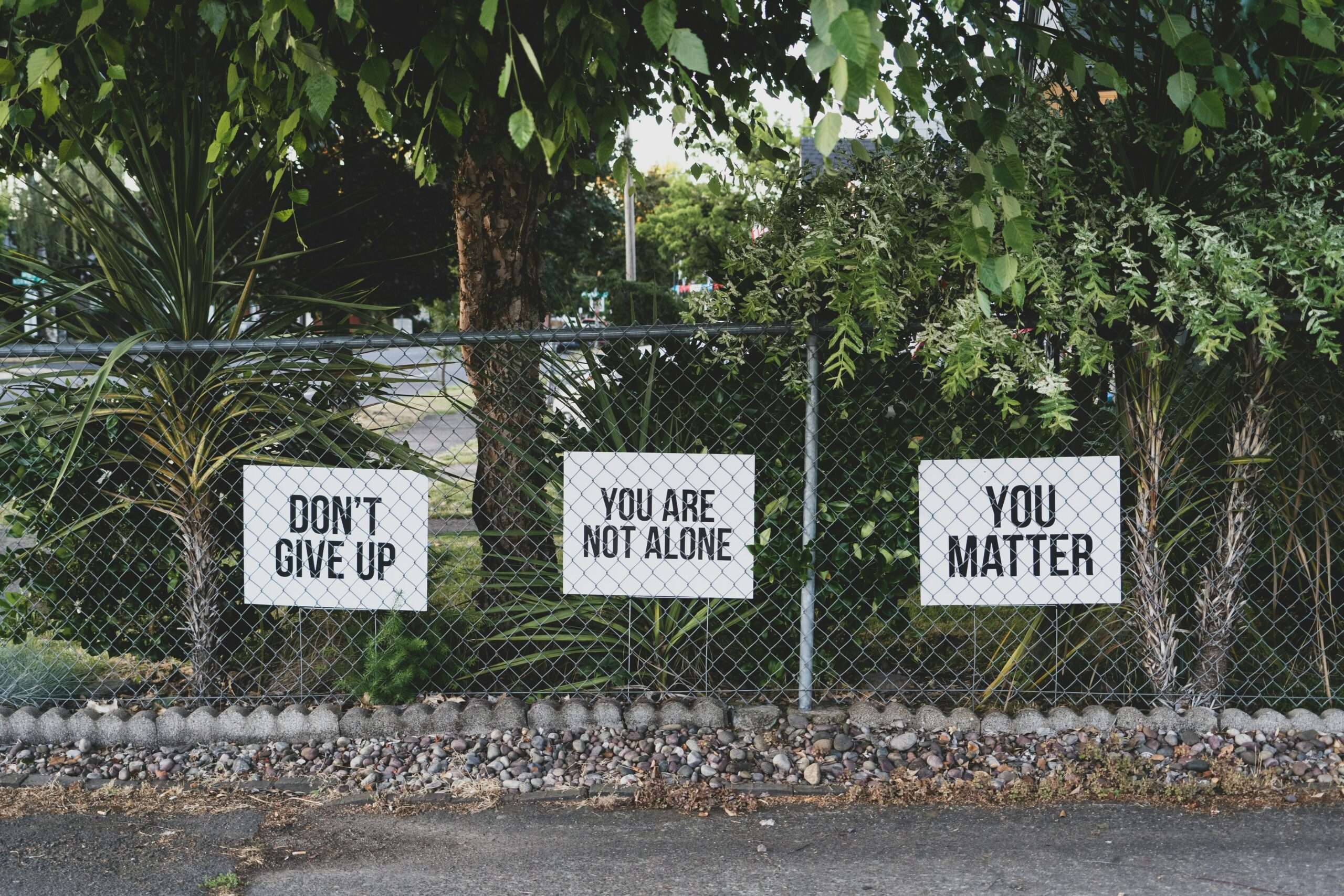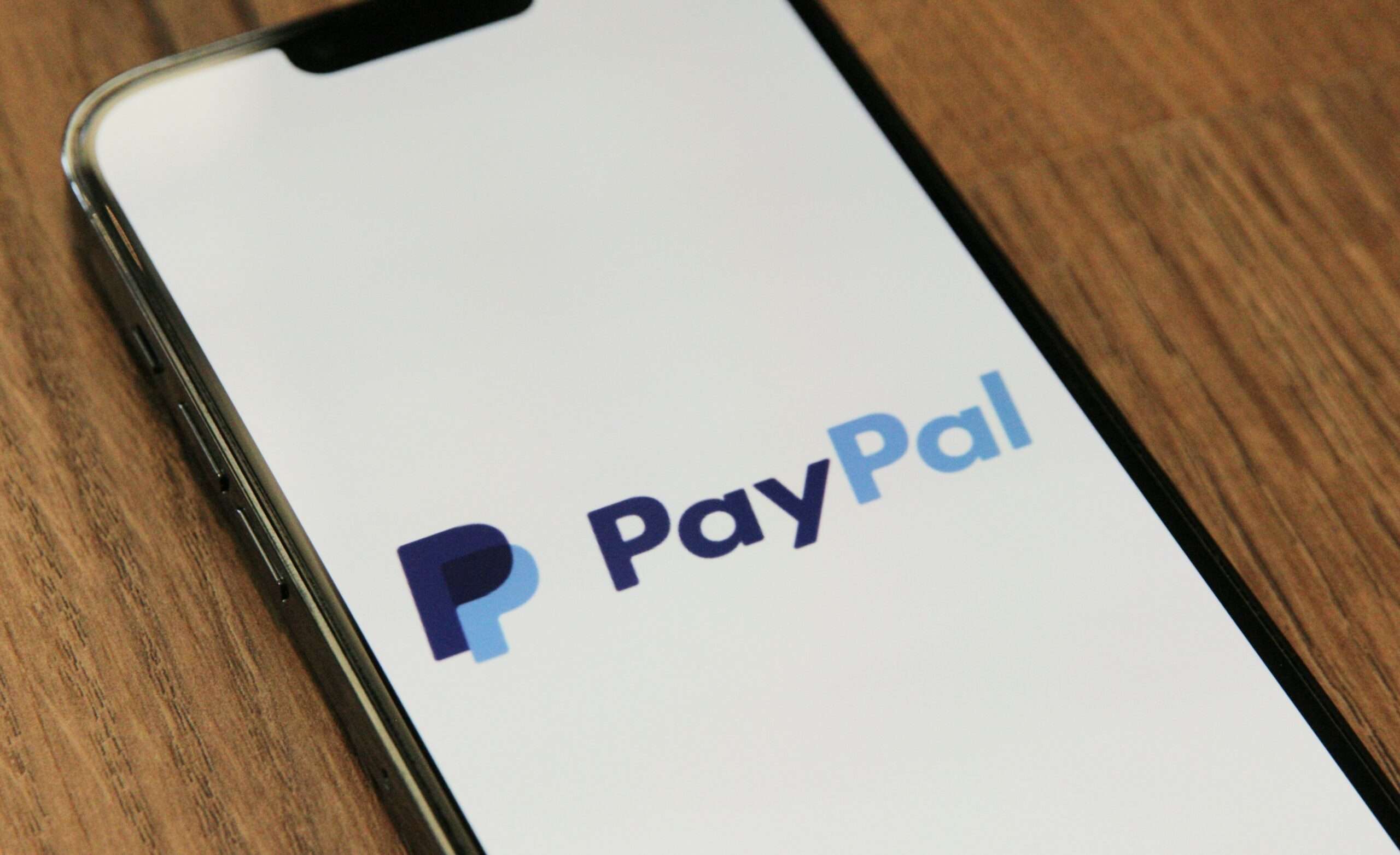How PayPal has made societal impact and purpose the guiding lights of its strategy.
While environmental, social, and governance (ESG) issues increasingly dominate the executive agenda, not all three elements receive equal attention. This episode of the Inside the Strategy Room podcast—one of three episodes exploring the various challenges around ESG—delves into the element that is most often overlooked but has been put into a sharp focus by the pandemic: the S. Senior partner Vivian Hunt and Bruce Simpson, CEO of the Stephen A. Schwarzman Foundation and a senior adviser to McKinsey on ESG and purpose, discuss engagement on social issues with Franz Paasche, who heads up corporate affairs globally for PayPal, a role that includes stakeholder management. This is an edited transcript of the discussion. For more conversations on the strategy issues that matter, follow the series on your preferred podcast app.
Sean Brown: Vivian and Bruce, you coauthored an article on stakeholder capitalism that talks about the growing importance of companies focusing on their societal impact. Why is that attention so vital today?
Vivian Hunt: We have done a lot of work on the impact of multiple performance variables and found that corporate outperformers look at a broader range of issues for their employees, investors, and other stakeholders over longer periods of time. If 2020–21 is teaching us anything, it is that the intersections of health, economy, technology, social factors, and, of course, geopolitics are more profound than ever. In the 1950s, a CEO might have said, “I spend a lot of time on regulatory or external relations.” Now, it is a much more complicated landscape. How do you get real insight into stakeholders’ needs and then link that to your strategy? Because we know that stakeholder relationships do link to value, and not only economic value. How do you define that value more broadly and bring it to bear in ways your stakeholders recognize?
“How do you get real insight into stakeholders’ needs and then link that to your strategy? Because we know that stakeholder relationships do link to value, and not only economic value.”
Vivian Hunt
Vivian Hunt: There is also the issue of resilience. Companies that have a broader aperture around purpose and ESG are more resilient, something we all saw the need for over the past year. Some of the impacts of the economic crisis have been starkly asymmetrical. For example, 54 percent of job losses linked to COVID-19 have affected women, who are 39 percent of the economy, and disproportionately involved frontline and lower-paying jobs. Anyone in the UK whose job pays £10 or less has been 40 percent more likely to be furloughed or laid off. Technology substitution is a good thing for access, efficiency, and data transparency, but if you don’t have the skills, the job you left may not be the job you go back to.Then, of course, there is income: What is a sustainable and livable income? What other pressures do households face, such as caring for older relatives, and how do you factor those in? When we don’t get it right, there is a real cost, and companies that do get it right perform better.
Sean Brown: Bruce, what does the S, or social, part of ESG cover in relation to corporations?
Bruce Simpson: We see a few factors, starting with treating workers fairly and paying them wages that give them disposable income beyond just paying for food and rent. In the US, frontline workers’ wages have not risen in real terms in 40 years. Second is investing in employee skills, training, and development, so people can move up to higher echelons on the economic ladder. Truly living diversity, equity, and inclusion and creating products that contribute positively to society are other aspects, as is improving communities where you operate.
Finally, there is moving from brands to stands. This last one is controversial because CEOs are “damned if you do, damned if you don’t.” Employees expect them to take stands on social topics that go well beyond the products and services their companies provide. In fact, 38 percent of consumers today are boycotting products or services due to a mismatch in values. On the other hand, of course, you can be criticized for such stands, particularly if people see your stand on a topic as inconsistent with other things the company is doing.
Sean Brown: How would you advise corporate leaders to determine which aspects of their companies’ social impact to prioritize?
Bruce Simpson: Companies need to know their vulnerabilities and strengths in the ESG space. They can look at themselves from the outside and calibrate: What is my environmental footprint? What is my social footprint? What is my governance footprint? Then consider what your vulnerabilities are within those brackets, as well as your strengths. Where can you step up and really make a difference? If you don’t know your vulnerability, the critics will point it out as soon as you start speaking about ESG or purpose externally and criticize you for it, so you had better get there first.
Now, 85 percent of companies have a purpose statement that does not mean anything to anybody. It’s a fluffy statement, often created by an ad agency, that does not anchor any specific business initiatives. Developing a purpose and an ESG focus is a business exercise requiring specificity. PayPal has a clear purpose statement, which cascades down into an understanding of the company’s vulnerabilities—cybersecurity, for example, and protecting users’ financial data—and its strengths: they have good data, for example, on working-capital challenges in their communities, and that is a strength they can develop. They also have clear platforms: employees, social innovation, environmental sustainability, and responsible business practices, with clear commitments that are measurable and for which people are accountable.
“Most companies have a purpose statement that does not mean anything. It’s a fluffy statement, often created by an ad agency, that does not anchor any specific business initiatives.”
Sean Brown: Franz, can you take us through the process of how PayPal engaged the organization in developing its corporate purpose and identifying the strengths and vulnerabilities?
Franz Paasche: This was a five-year journey for us. We had the opportunity to essentially re-found PayPal after eBay spun it out in 2015. The first task we took on was to articulate a new mission with a strong central purpose and values that would reinforce that mission. We also defined a strategy that was built in combination with and would reinforce the mission and values, and our employees have become a huge force for the mission and hold us accountable to live our values.We articulate our central purpose as democratizing financial services and e-commerce. We help underserved communities connect to the financial system and have the benefits of the global economy, and we strive to improve the financial health of customers and communities who needed affordable, easy, safe ways to connect to the global economy. We had some difficult moments of learning what it means to live your values both internally and externally.
Sean Brown: One of those moments was probably seeing the results of the financial-security audit you did of your workers to understand whether they have enough income to live on. Can you tell us about that?
Franz Paasche: This goes back to 2018 but it prepared us for how our employees would experience the pandemic period. At the time, we were building products such as PayPal Working Capital, which enables small businesses that don’t have access to banking services or can’t afford the fees to get capital online, and as we studied the data, we started to think about our own employees. We have a broad range: some employees work in call and operation centers; others are lawyers, PhDs, and engineers. We also have an employee emergency fund to help employees during personal crises, and we started to see some requests for seemingly small crises that one would not think would derail a person’s finances. So we did a survey and found that about a third of our employees were struggling paycheck to paycheck. That was a surprise to us because we pay at market or well above market rates. Clearly, capitalism wasn’t working for this portion of the economy.
We worked with nonprofits and academic experts and developed a concept we call “net disposable income.” We asked, “What do our employees have after they have paid their essential living expenses and taxes?” What we found was that many of the employees in that third of the company that were struggling financially had 4 to 6 percent net disposable income. We set 20 percent as our goal and took immediate action. We looked at this from a stakeholder perspective—our employees are our most important constituency and it was unacceptable, given who we were and what we stood for, that we would have employees who were concerned about making ends meet.
We then put in place a four-part program. We reduced the cost of healthcare benefits, in most cases by as much as 60 percent, which made a big difference, certainly in the United States, where healthcare can be a regressive tax that hits lower earners to a higher degree. We gave everybody stock—not options, but restricted stock—so every single person was an owner, and we made them eligible to receive stock in the future. We adjusted wages to meet the standards of a livable wage. Lastly, we created an education program so employees could start to think about their financial security.
Bruce Simpson: There are striking statistics from JUST Capital [which ranks companies based on their actions on issues Americans care about] that show, for example, that 50 percent of workers at Russell 1000 companies are not making enough to support a family of three even with their partners working part time. At the same time, I understand that the average net worth of a White family is ten times higher than a Black family’s. We see a staggering difference between Main Street and Wall Street, and I can imagine senior executives saying, “That’s a big challenge. It is important, therefore, to pay the minimum wage and increase benefits and investments in training.” Is that simply a cost, though, or have you also seen benefits and a return on investment, Franz?
Franz Paasche: We saw benefits almost right away, and they are accruing. Now there is no one at PayPal in the US whose estimated net disposable income is below 18 percent, and we are heading toward 20 percent this year. We have seen impact in the amount of healthcare benefits people access and increases in 401(k) plan enrollments and our employee stock purchase program. Our data show employees reporting less stress in making ends meet, and we are seeing higher retention. We also have incredibly high engagement scores, and they were higher during the pandemic than before, which I think connects in part to the fact that our employee community feels financially secure.
You mentioned JUST Capital—we have entered into a partnership with them, along with the Financial Health Network and the Good Jobs Institute, to share our data and what we are learning with other companies and are working to build a coalition. Imagine if a huge number of the great employers around the world started to focus on the full financial security and health of their employees. That would affect every community and the way our economies work.
Vivian Hunt: This notion, Franz, of starting with one stakeholder is interesting. UPS, for example, started by focusing on anyone who touched a package—from the business that sent it to the employee who delivered it—and that resulted in great retention. My point is that going deep with one stakeholder is an important lesson in your story.
The second important lesson is that these days, there is no absence of data but there can be an absence of insights about your data. The analytic, tailored approach to the S in ESG will deliver different answers for PayPal than for its competitors and companies in other industries, so sharing the methodology and getting the rest of us up the curve faster really benefits the system.
Franz Paasche: We do take a multistakeholder approach. We have five stakeholders we focus on: employees, customers, shareholders, governments and regulators, and society at large in the communities. We put employees first and we have been very clear about that. We think that creates value across the spectrum of our stakeholders, because if you have secure, committed, and inspired employees, they are more passionate about their work and serving customers. We are regulated in 67 countries and we need our employees to pay attention to compliance and risk management. Also, our employees volunteer and engage in the communities.
“We put employees first and we have been very clear about that. We think that creates value across the spectrum of our stakeholders.”
Sean Brown: Franz, how do you view the line between the responsibility of the employer versus the responsibility of governments or broader society to address some of the urgent societal needs?
Franz Paasche: We live in a world where people are subject to discrimination and intolerance and violence and economic stress. We can’t solve all those issues, but we can be a responsible actor and we can do our part. For example, we have put in place an initiative to help close the racial wealth gap in the United States and to support and empower entrepreneurs and small businesses in minority communities.
Vivian Hunt: The impact of socially conscious initiatives can also be quantified quite easily. If you look at Unilever’s inclusive, tailored brands, whether they are tailored in terms of affinity with customers or with the communities that produce the products, those brands are growing faster than brands that don’t have this stakeholder fit. Recent work we did on the experience of Black employees in the US private sector showed that brands with tighter affinity to customer groups see consumers switch to them faster and show higher loyalty. So you can start with company-based metrics, and that quickly can demonstrate broader social impact.
Franz Paasche: We spend a lot of time on measuring the social impact of our products. We have several products and services focused on small businesses and particularly those that have less access to capital or the digital economy. Through our PayPal Working Capital product, we are now one of the top five lenders to small businesses in the United States, and 70 percent of those PayPal Working Capital loans are going into regions of the country where banks have pulled out, sometimes for good economic reasons. Similarly, we know that more than 80 percent of small businesses that connect to PayPal engage in global commerce, and during the pandemic, those that could engage in global commerce were far more resilient than primarily local small businesses.
Sean Brown: This sounds like a great example of using your corporate strength, which Bruce was talking about earlier, to go deep on an issue.
Franz Paasche: Yes. There are many companies that are good at other things. We are really good at payments and digital distribution. We have tried to focus our social impact on things that further the mission we have articulated and leverage our core competencies, as opposed to just writing a check. We didn’t create a foundation when we brought PayPal out of eBay; we put all our social-innovation focus into products, services, programs, employee initiatives, and partnerships. Another example of that is, we have the largest donation platform in the world. In 2020, over $17 billion was donated through PayPal to causes that our customers care about, and the average size of those gifts was under $100. Our platform democratizes philanthropy while enabling us to mobilize during a crisis. If there is a hurricane or a flood, we can mobilize our donation platform to enable customers to give in a focused way. It also helps our employees see the connection between the work they do and how we fulfill our mission.
Similarly, when choosing causes on which to take a stand, we have tried to focus on our values. When there is a societal question and we confront the question all companies face—are we going to take the lead, are we going to join in a coalition, or will we let other companies bear this one?—we draw on our value of inclusion and how our mission is represented in the world to make those decisions.
Vivian Hunt: It also allows you to have a criteria-based way to have the discussion because, in the same way that you can look at the cost to serve a small business in a rural location, you can assess the cost to serve on a social initiative.
Sean Brown: Does acting in accordance with PayPal’s purpose and values have an impact on the bottom line?
Franz Paasche: I will always remember that on the front page of our first five-year strategy for PayPal, we talked about the intersection of purpose and profit. It’s a false choice to think you need one without the other. For us, the combination of purpose and profit has been a strategic strength, and I think that has been true for our employees and stakeholders as well. That does not mean there haven’t been some bumps along the way. We have taken some stands that resulted in having to have armed guards at our doors, because some of those positions brought out aggressive opposition from people who felt we should not have taken the stands we took on LGBTQ equality or on guns. Our decisions were based on how we live our values, but there are costs.
Sean Brown: PayPal is in a fast-growing industry and operates a massively efficient platform. Many other companies don’t have that agility or capabilities. How should traditional companies approach corporate purpose?
Vivian Hunt: An experience like the pandemic can be a reset moment. We have now been working on the E in ESG for many years but are we a little afraid of the S? Are we just approaching it through diversity and inclusion but not other, systemic factors? I would encourage business leaders, whenever you can hit reset in a business and reallocate resources, to think about adding one stakeholder or one area you want to build on with a distinctive strength.
Vivian Hunt is a senior partner in McKinsey’s London office. Franz Paasche is senior vice president and chief corporate affairs officer at PayPal. Bruce Simpson is CEO of the Stephen A. Schwarzman Foundation and a senior adviser to McKinsey on ESG and purpose. Sean Brown is global director of communications for McKinsey’s Strategy & Corporate Finance Practice and is based in the Boston office.
The article was first published here.
Photo by Marques Thomas on Unsplash.

 5.0
5.0 

















